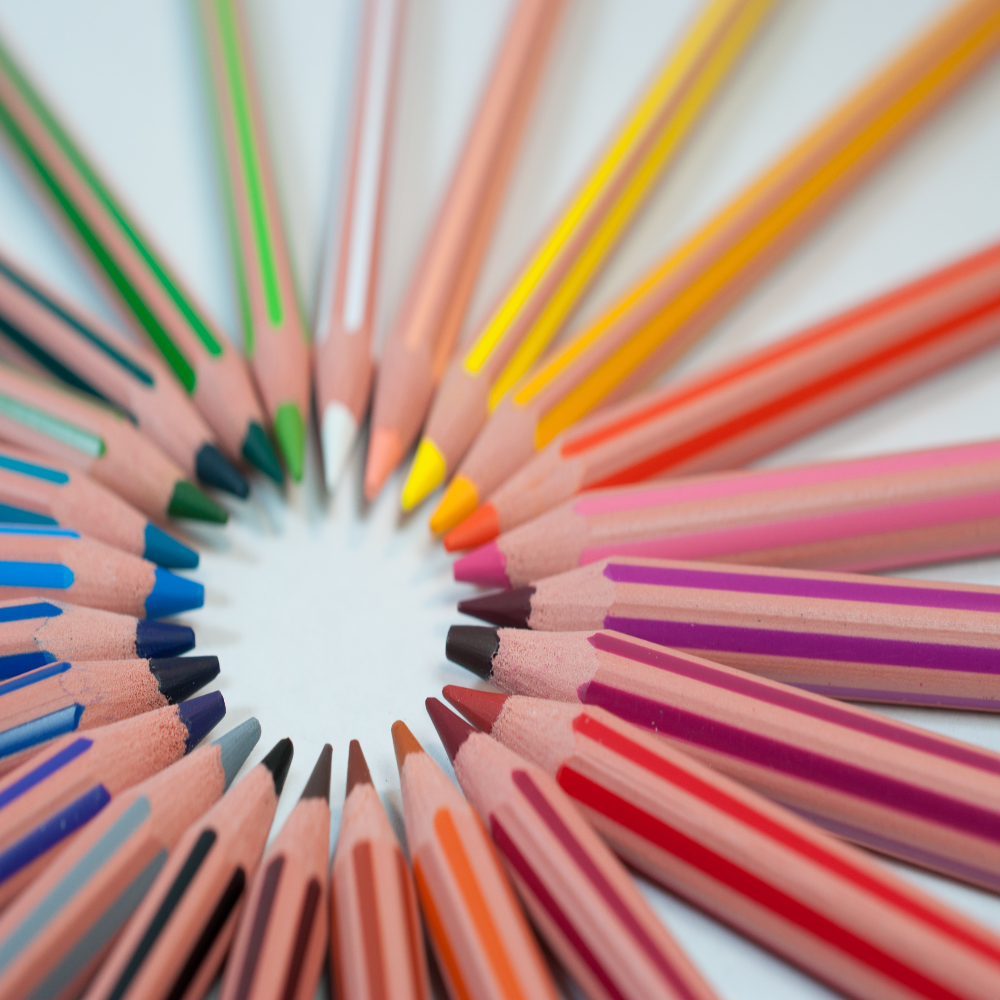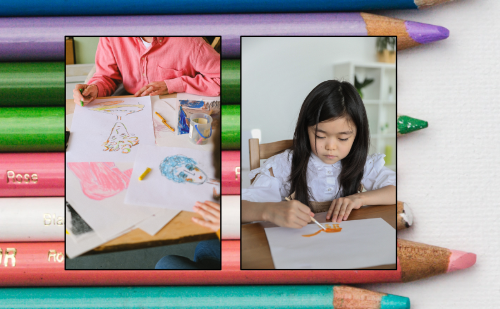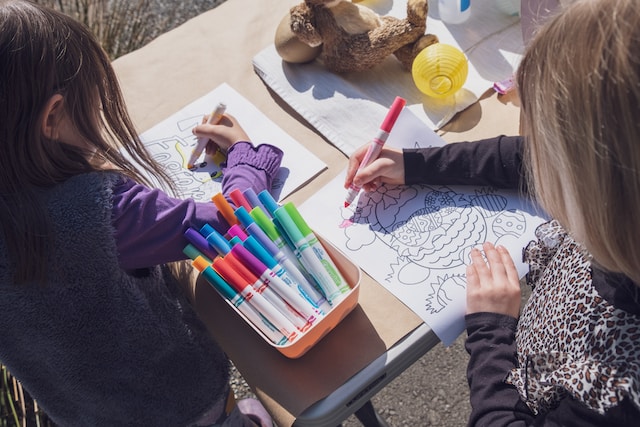
11 Benefits Of Coloring For Teens & Children!
Table of Contents
Did you know that coloring can provide many benefits for mental health?
If you would like your child to be able to focus on their school work and learn with clarity of mind, you should focus on coloring and other creative activities.
Art therapy is successful at helping mental health conditions and is used as inpatient therapy. If inpatient therapy uses practices like coloring to help patients, how much can it assist stressed out kids and students?
The Benefits of Coloring for Focus and Clarity
Two studies were conducted at the University of West England, to study the benefits of coloring in pictures.
In the first study, it was found that after coloring in for twenty minutes, students were more energetic and could focus on what was currently happening.
In the second study students displayed more creative thinking and had better visual ability.

Further Benefits Students May Gain from Coloring
It’s almost as if society suggests to us that coloring or painting is a waste of time. But it’s actually not.
In fact, if students and parents really knew the truth about coloring, as well as the benefits of all types of creative activity, then they would definitely participate in them more!
Creative and artistic pursuits are actually wonderful for mental health and have become even more important in this day and age.
Coloring is a Natural Therapy for Anxiety and Depression
Use of antidepressants among school students today is at an all time high. While doctors and psychologists are looking into the reasons for this and how antidepressants can help, it’s important to take stock of our lifestyles and look at any natural techniques and practices that we can readily incorporate into our children’s lives. Because it is so easy to do, we really should not be neglectful of the benefits of coloring and what it may do for us!

Coloring Helps Express our Subconscious Thoughts
Being creative, and using techniques such as coloring and painting is a wonderful way to practice the technique of ‘mindfulness’, which means to focus on the present moment.
Coloring and creating various objects of art can help older students get in touch with their subconscious thoughts and feelings and assist them in processing them. Coloring can be an intensely private activity, or it can be something that we share with others, as we communicate our thoughts.
Benefits of Coloring Used in Inpatient Therapy
Therapies such as ‘Cognitive Behavioural Therapy’ is a technique that can be used for help to change unhelpful thought processes. Likewise mindfulness, psychotherapy and other psychological techniques have significant benefits. But did you know that ‘art therapy’ is so beneficial that it is used in inpatient facilities and powerfully helps conditions such as cognitive impairment, depression, anxiety and more?
If being creative can be used to help these conditions, it should be obvious that we include various types of art therapy as part of our younger and older students education.
How far the benefits will go in helping prevent any anxiety or other mental health issues, we may never know, but an ounce of prevention is always better than a pound of cure!

Coloring Helps Move our Attention Away from Negative Thoughts
Coloring can assist us in focusing on things other than our negative thoughts. Because our attention is focused on the physical act of coloring and other mental processes, we stop engaging so much with our anxious thoughts and are more likely to lower our stress levels and our cortisol. Also, by completing a fun and challenging coloring project, we attain feelings of accomplishment.
When we color, we take time out just for ourselves. This signals to our brain feelings of worthiness that (thereby increasing feelings of self esteem), as we are apportioning time and value to ourselves.
Coloring Releases Bottled up Emotions
The physical act of coloring helps us express our bottled up emotions that we may have trouble dealing with. Joining an art groups to learn different art techniques and be with others to learn things can also lower stress in us and create a sense of belonging.
Feeling like we belong is important and it is essential that students have that experience prevent any encroaching depression or anxiety.
Benefits Of Coloring For Toddlers & Young Children
Coloring is not just wonderful for older students, it also supports many, many important developmental processes for toddlers and young children. For toddlers, Some of the benefits of coloring are as follows:
1) Handwriting/Hand Eye Coordination & Motor Skills
Coloring pages will help your child with the ability to grasp a pencil (or other coloring tool). When focusing on pictures and practicing coloring within the boundaries and lines, hand/eye coordination is practiced and improved.
Another benefit is that hand/eye coordination and improvements in it, is a strong predictor of academic skills and performance in general academia.
Motor skills can also help children perform better academically. As children begin to color in their fine motor skills, their hand muscles begin to develop more strength.
According to one particular study, children who practiced coloring images moved to the group with advanced more skills from a group with the lowest level of motor skills.
2) Understanding of Color Theory & Improvement of Self Esteem
When children begin to color in they begin to learn all about the basics of color theory, even if unaware as they begin. They also feel a sense of accomplishment from completing a coloring task which fosters greater feelings of self esteem!

3) Recognition of Color Theory & Language Development
As children are exposed to mediums of coloring for the first time, they begin to learn about color theory. Firstly, they learn about primary colors and then secondary, even if they don’t have to language to understand, that is in essence what they are doing.
As they create more complex artwork and color schemes their use of language will develop for them to more accurately convey the emotions and express what they are feeling through their art.
4) Helps Kids Focus & Express Themselves.
As kids color, they begin a journey with creativity. They begin the thought process of what combinations they can try, what sort of colors they can begin to mix together as part of their own unique process. The ability for a child to practice sustained focus also improves as they continue and develop patience with the process. This ability is extremely helpful for academic pursuits.
Conclusion
As we can see, coloring is so valuable in our children’s development all the way through the various developmental stages. From toddler stage with dot markers and crayons all the way through to senior studies with anxiety relief and therepuetic benefits, coloring is so valuable that you should always have coloring pdfs or books handy for relief of stress. Even a ten minute session before some serious study time will bring the benefits through! To see our wonderful range of downloadable coloring files and other educational files, check out our shop and bring the benefits home to your family today!

